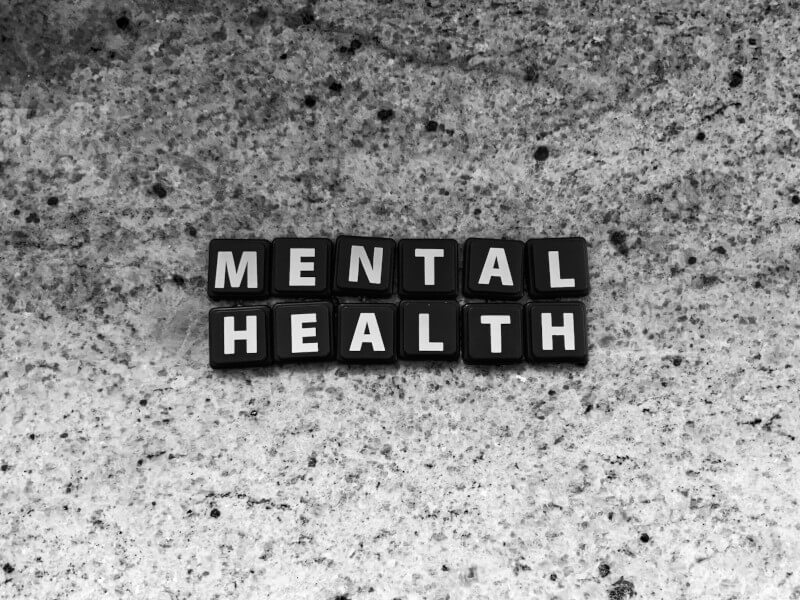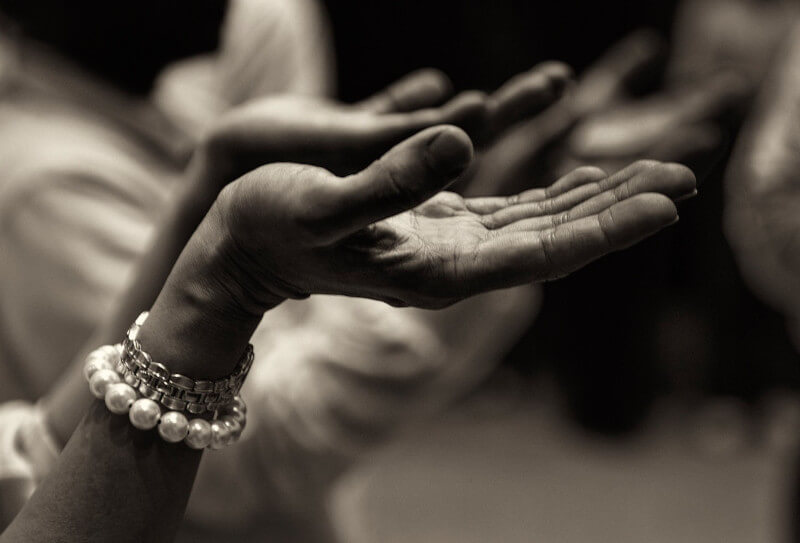Can You Find Inner Calm through Religion? Meditation as a Path to Inner Calm
Religion and spirituality play an important role in helping people weather life’s storms. Most of us are religiously devout because we want to avoid hell. Did you realise, though, that our physical and emotional well-being can benefit from our religious participation as well? Having a religion provides us with a moral compass. It can serve as a compass and an anchor for us. Spirituality helps us feel connected to a power greater than ourselves and our problems.
Unfortunately, there is a flip side to using religion as a coping mechanism. One’s mental health can either benefit from or be further damaged by one’s perspective on religion and spirituality. Does faith help one find inner calm? Keep reading to learn how our religious beliefs can either help or hinder our recovery from a variety of mental health issues.
Faith and Religious Practices
To worship a higher supernatural being is central to many religious traditions, which together make up what is commonly referred to as “religion.” It is a set of shared moral principles based on shared cultural and spiritual traditions. Whether or not we identify as religious, the history and culture of our society have been shaped by religious beliefs and practices.
Transcendental and interpersonal experiences, on the other hand, are central to spirituality. What this means is that we are aware of the larger meanings at play in our lives. Our lives are an integral part of the cosmos, and these spiritual ideas—compassion, love, and the afterlife—are universal.
Our religious and spiritual practices can enable us to preserve psychological stability by strengthening our connection to a greater force, even though the effects of religion and spirituality on our mental health have long been a source of controversy and discussion. This is because the growth of a person’s spirituality and religion go hand in hand with the cultivation of those qualities.
Indian Perspectives on Mental Health
An article from an Indian journal explores the influence of India’s religious past on contemporary psychiatric care. It has also become contentious because there is no generally accepted meaning of the term. In some nations, the diagnosis and treatment of psychiatric disorders are impacted by cultural variables. Culture has the power to alter one’s outlook on behaviour and thought. It can have an impact on whether or not we decide to get care for our mental health issues. Consider these four examples of cultural influences on psychological well-being:
This Social Disapproval From the Culture
The stigma associated with mental illness varies from one culture to the next. Some people’s mental health is being negatively impacted by a growing stigma. Mental health issues are taboo and should be hidden from public view. Those who face discrimination for expressing their true emotions have a harder time with this.
Symptoms Are Being Recognised
Cultural norms shape how people of various backgrounds interpret their mental health. Whether or not people in a given culture choose to acknowledge their symptoms may also be influenced by cultural norms.
Facilitation of Social Interaction
The degree to which your family and friends encourage you to take care of your mental health can also be influenced by cultural norms. They might want to avoid you because of the prejudice that surrounds mental illness. You could be abandoned to find your way to mental health care, though.
Resources
Finding the right treatment centre requires speaking with a specialist who can relate to your situation. It can be challenging for people with mental health issues to locate resources that take cultural considerations into account.
Can You Find Inner Calm through Religion?
Mental health practitioners in healthcare settings sometimes employ this concept of religious empowerment when working with patients who are experiencing mental health issues. The sanctity of human life and other biblical passages may help these people reconsider ending their lives prematurely. Numerous studies have examined the correlation between religious belief and physical and mental well-being. We can look to religious teachings for direction in figuring out how to direct our life. We can better deal with the strain and tension that life’s uncertainties typically bring by adhering to these rules.
Higher degrees of religiosity and spirituality have been linked to better psychological well-being. These individuals typically have better-coping mechanisms for stress and other unpleasant emotions. Furthermore, those who remain faithful to their religious and spiritual traditions report higher levels of happiness, optimism, and self-esteem than those who abandon such practices. Participating in religious rites can help you feel more connected to others who share your beliefs. Participation in any kind of religious group, whether formal or informal, can provide the necessary spiritual sustenance and beneficial effects.
Religion is widely used and highly successful as a coping mechanism for people with mental health difficulties, according to the findings of an international publication. Many in the medical field see this as a crucial step towards the mainstreaming of psychology in healthcare. They’ve witnessed religion’s efficacy in treating mental health issues like GAD and depression.
Ill Mental Health Due to Religious Beliefs?

Those struggling with mental health issues may find strength in religious coping practises. Contrarily, practising religion in a harmful way as a means of coping can be counterproductive and even harmful to one’s mental health. Research has shown that this can worsen patients’ psychiatric symptoms, particularly depression.
Patients with mental problems have benefited from clinicians’ incorporation of religious views into care, according to research. The positive effects of religious belief on social support and self-regulation have been well documented. These patients benefit from an enhanced sense of agency as a result of their religious participation. Prayers, meditations, and other religious practices can help mitigate the negative effects of medical illness. Mentally ill people have reported feeling less anxious and tense after engaging in religious rituals. Self-criticism is reduced, and self-awareness is enhanced.
On the other hand, holding negative religious ideas can fuel tensions and even lead to bloodshed. When someone is ill, they are told they are being punished for something they did or that they are possessed by an evil spirit. Some faith communities may advocate for harmful practices like exorcism or witchcraft as a means of healing. One who holds extreme religious beliefs is likewise considered an extremist:
- Hateful
- Dangerous
- Inappropriate and illegal
The Effects of Religious Practices on Psychological Well-Being

Patients with psychiatric problems might benefit greatly from religious coping strategies, especially those who are economically and socially marginalised. It’s possible to think of religious coping as a useful and readily available resource for healing. Religion and spirituality, used together, have been shown to improve health in numerous ways. Some of how religious observances help our mental health are listed below:
- They have the potential to enhance our quality of life and general happiness for several reasons.
- They pay more attention to the things they put into their body.
- They prioritise their health and engage in healthful habits.
Among Christians, those who go to church regularly are likely to be more content than those who don’t go as often. The happy emotions they experience as a result of their faith have a profound effect on their physical well-being. A religious person may have characteristics such as forgiveness and compassion. Improved resilience and reduced stress are just two of the potential clinical outcomes of cultivating these characteristics.
Improved Spiritual and Social Support is a Direct Result of Religious Participation
Those who have a common religious belief system form cohesive communities. When people find others who share their religious convictions, they feel a strong sense of community and acceptance. Spirituality brings individuals of all backgrounds together under a shared set of values. Being a part of this larger group makes it easier to connect with like-minded individuals and fosters spiritual growth.
They Reduce Feelings of Guilt and Boost Confidence
Self-regulation and the alleviation of depression are two additional benefits of spirituality. It helps people feel more confident in themselves and more connected to their values. Regular participants in religious events place high importance on their faith, which is associated with a lower incidence of depression. Participation in a religious group has been shown to improve resiliency. Members of these groups are more likely to respond positively to adversity if they are provided with positive spiritual support. Researchers have also found that Christians had higher self-esteem than atheists.
They Serve as a Buffer Against Mental Illness
Depression and substance misuse, two of the most common mental diseases, may indicate a lack of spiritual direction in one’s life. Religion encourages us to engage in beneficial mental health behaviours like introspection and meditation. They allow us to temporarily set aside our mental anguish and other depression symptoms, and they inspire us to pursue more purposeful activities.
Having Faith in Our Mental Health
For a long time now, studies have shown a positive correlation between religious practices and psychological well-being. People who regularly attend religious services seem to have better overall mental health. They’re more content in their relationships, have solid social networks, and look on the bright side of life. In contrast to atheists, they enjoy life more.







